LeadBoston Class of 2019 on becoming inclusive leaders driving change in Boston and beyond
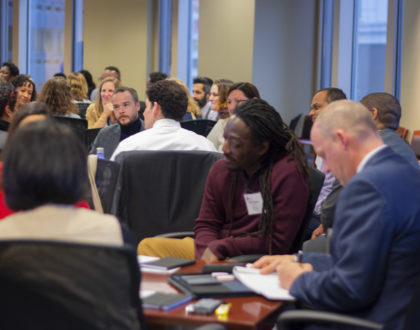
Studies predict that by 2050, there will be no racial or ethnic majority in the United States. Some argue this will happen even sooner. Given our changing demographics, institutions are realizing the importance of promoting diversity, equity, and inclusion at all levels. More than ever, leaders are recognizing that in today’s social, economic, and political climate, they must understand how their organization both impacts and is influenced by overarching city systems.
Participants from YW Boston’s LeadBoston program acknowledge the importance of building skills that enable them to analyze root causes of diversity, equity, and inclusion challenges faced by their organizations and communities. Class of 2019 participant Johana Muriel Grajales, Director of National Strategy and Innovation at Latinos for Education, gathered fellow class members to discuss the impact the program has had on their professional lives and beyond.
______
Anyone who knows a bit about my home country Colombia has heard about the transformation of Medellín. A city once well-known for its drug cartels and marginalized neighborhoods, Medellín went through a restoration process by a series of public-private partnerships into an innovative, more inclusive, and prosperous place. Growing up during this transformation inspired me to study Urban and Public Affairs at the University of IL at Chicago. Soon after graduating from college, I moved to Boston to pursue a Fellowship in Social Enterprise at City Year. Working there I fell in love with the vision to help every child realize their full potential.
But after years in a national role and switching jobs to work at Latinos for Education on a program-related role, I noticed my knowledge of the education sector was growing full of blind spots about the local social determinants of education. I realized I would never be an effective leader if I continued to be unaware of the intricate inequities within the city I live in. This is what led me to apply to YW Boston’s LeadBoston program. While comparing my experience with some of my fellow 2019 classmates, I discovered that many of us had already started to see the potential impact of the program in us, our workplaces, and communities.
Here are our shared viewpoints about the LeadBoston experience.
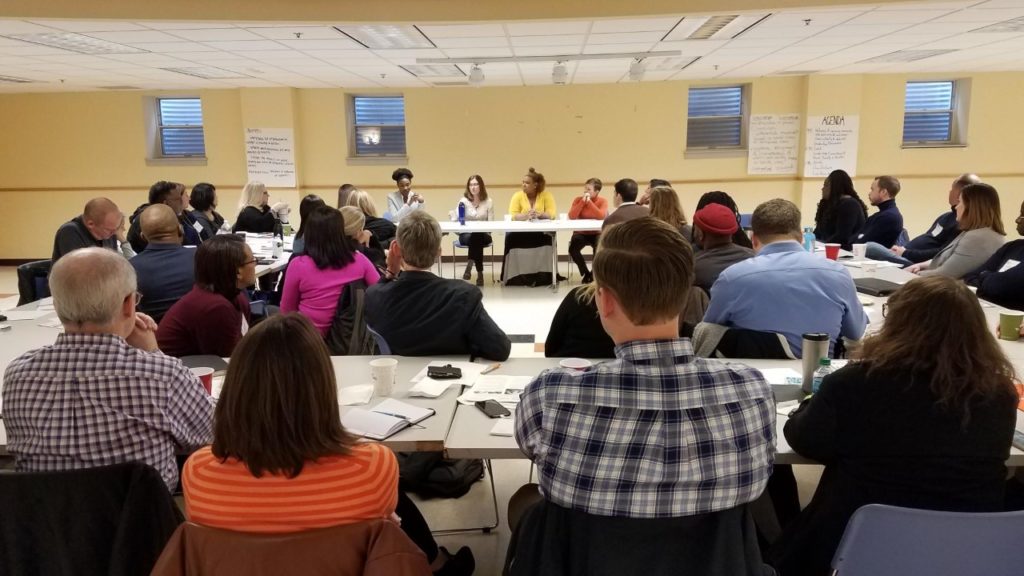
It’s one thing to read about disparities, but another to explore why and how they manifest themselves in the City of Boston
A friend once asked me, “isn’t that something you can learn in a newspaper or a podcast?” The answer is no. Content curation is just a starting point to the LeadBoston experience. It is one thing to read an article and another to visit areas of the city that we would normally not experience; to try and problem-solve community scarcity or visit Boston Public Schools and hear directly from students and faculty. It gets real! You are not just hearing the facts. You are exploring emotions that trigger transparent and courageous discussions.
Simulations and site visits are an essential part of the LeadBoston experience. One of these experiences tackled the consequences of systemic disparities in resources, policies, and oversight. When I asked my classmates, what was their “aha!” moment, Catherine Drennan, Director of Communications and Public Affairs at The Greater Boston Food Bank, pointed to that experience. “I found [that] activity to be the most influential. It was a fascinating human micro experiment on how people feel on a macro level when treated differently and not provided the same resources as everyone else. I also found it interesting that many in the groups that were given so much never noticed how little others received until the end.”
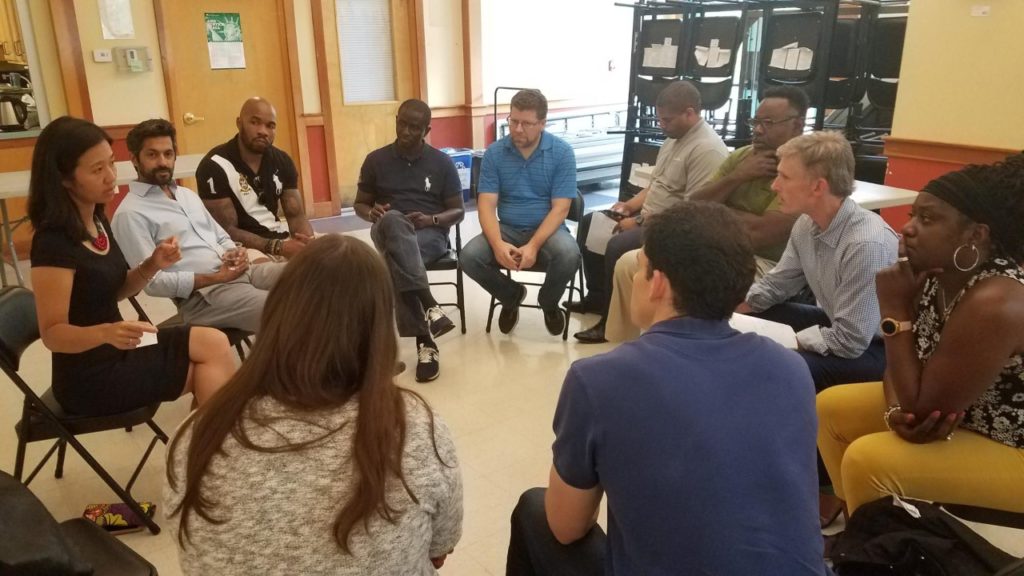
There is power in bringing together all sectors to develop a city-wide legion of inclusive leaders
LeadBoston meets organizations’ demands for more inclusive leadership by equipping mid-to-senior level professionals from all backgrounds and sectors with the knowledge, skills, and network to propel their leadership, and their organization’s success, forward. That is why I agree with our classmate Lisa Goldblatt Grace, Co-founder and Director of My Life My Choice, when she shared that, “LeadBoston has been an incredible opportunity to build what I hope to be lasting connections across what so often divides us—sectors, race and ethnicity, issues—among folks who share a fervent desire to make our communities better.” It is also encouraging to hear others like Avra Goldman, Physician, Assistant Professor of Family Medicine at Boston Medical Center, when she pointed out that for doctors like her, LeadBoston “is really instructive to learn about the other aspects of the lives of patients.”
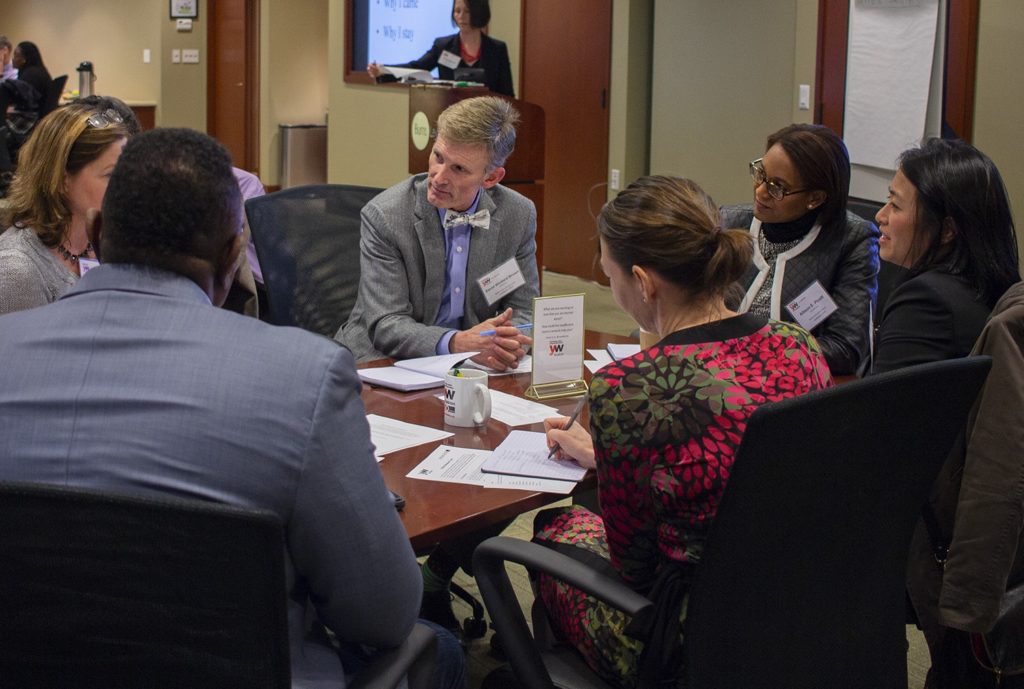
The magic lies in building a network of leaders committed to action
Part of the magic of LeadBoston is how it pushes us to check on our individual views and behaviors to connect with others who do not look like us. Our classmate Kofi Callender, Executive director at Smarter in the City, pointed out that he would also “highly recommend LeadBoston to folks who are not of a similar background as those affected by the inequities of Boston because allies are needed to make a change.” As a Latina, at LeadBoston I have finally found those allies.
Another aspect of that magic is increased leadership commitment. Allison Picott, Director of Development at the Social Innovation Forum, describes LeadBoston as “an eye-opening opportunity for a person to not only learn about
Just mid-way through the program, I am grateful and humbled to be part of this experience and the alliances that will enable us to continue to make an impact.
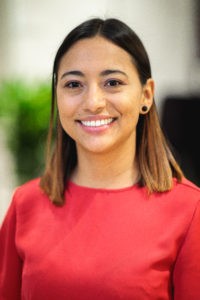
Johana Muriel Grajales serves as the Director of National Strategy and Innovation at Latinos for Education, whose mission is to develop, place and connect essential Latino leaders in the education sector. In this role, she manages the design and implementation of national strategy tied to growth and innovation imperatives to ensure more Latino leaders and entrepreneurs are at the front of closing the education gaps facing the Latino community.
Do you wish to join our network of inclusive leaders like Johana?
Applications for the LeadBoston Class of 2020 are now open – click here to learn more about the program, apply to join or refer a peer to our next cohort.
_______
About LeadBoston
Become a part of YW Boston’s LeadBoston program and join a network of over 1,000 inclusive leaders in Boston. During this 10-month program, participants explore and learn how to address barriers to inclusion through facilitated dialogue, expert speakers, and peer learning. Through experiential activities, participants delve into the socioeconomic realities of Boston and explore innovative solutions to inequity.
